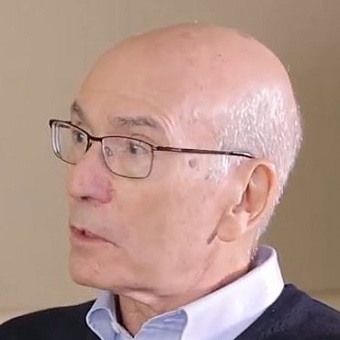
Stephen
Stich
Stephen Stich is Board of Governors Distinguished Professor of Philosophy and Cognitive Science at Rutgers University. His publications include seven books, thirteen anthologies and over 200 articles. He is the first recipient of the Gittler Award for Outstanding Scholarly Contribution in the Philosophy of the Social Sciences and a Fellow of the American Academy of Arts and Sciences.
Transcription of the video
Which domain or aspect of social life will show the most significant positive societal and/or psychological change in response to the pandemic?
One of the most positive societal changes that we’ve witnessed in the last few months is the growing awareness, both intellectually and emotionally, of the serious racial injustice that exists in the United States. A major reason for that quantum jump in awareness certainly was the killing of George Floyd, and the excruciating video of that horrible event. I’m inclined to think that the pandemic actually contributed to the positive impact of the video. The economy is locked down, many people were working from home, there was more opportunity to see the video than there might have been prior to the pandemic. And since so many of us were suffering, we were perhaps primed to see and emphasize with the suffering that was portrayed on the video, and to begin to understand the impact that widespread racism of the sort that was so obvious in that video has had on the lives of millions of our fellow Americans. In addition, of course, large numbers of people joined the Black Lives Matter demonstrations. Here again, I think the pandemic may have facilitated that response. Schools and universities were closed, many people were out of work, and the responsible news media made it clear that people of color were much more seriously impacted by the pandemic. I think it was sort of the perfect storm that forced many of us to see more clearly and to emphasize more vividly with the impact of racism and inequality.
What kind of wisdom will people need to capitalize on the positive societal and/or psychological change after the pandemic?
When the pandemic’s over, people will be anxious to get on with their lives and to make up for lost time, and it’ll be all too easy for privileged white people like me, to let our newfound understanding and empathy with the plight of people of color to drift into the background. It’ll be easy for George Floyd’s death and the many other deaths that we’ve learned about to become, as they say “yesterday’s news”. To prevent that from happening, or maybe it’s impossible to completely prevent it, but at least it diminished the tendency to forget and move on. People need to take steps now. Join an organization, become involved volunteers, put yourself in a place where it’s going to be hard not to see the inequality and harder not to emphasize with the suffering that racism engenders. It’s the wisdom to get involved.
Which domain or aspect of social life will show the most significant negative societal and/or psychological change in response to the pandemic?
The negative impacts I personally worry about most are the ones that, not surprisingly, are closest to me. The devastating effect it’s going to have on the careers of so many of the students that I work with. Graduate students are going to find it vastly more difficult to launch their academic careers. Many graduate students devoting three or four or five or six years to graduate training, are going to find that it’s impossible to get a job at a college or university. Undergraduates are going to find it much more difficult to launch the careers they’ve been trained for and had been hoping for. So inevitably years are going to be lost. Life plans need to be put on hold. And I think in many cases, the income loss will never be recovered. The current generation of students is going to be worse off than their parents, almost certainly for the next decade and possibly for their entire lives. That may not be the most devastating impact of the pandemic. Afterall, hundreds of thousands by the time we’re done, perhaps millions of lives will be lost. But it’s the one that looms largest to someone like me, whose career is involved in teaching and mentoring undergraduates and graduate students.
What kind of wisdom will people need to master to overcome major negative societal and/or psychological changes after the pandemic?
Flexibility. A willingness to walk away from what the economist calls “sunk costs.” Yes, it really sucks to invest years in preparation for a career you’ll probably never have. But I think the people who do best in dealing with the situation are going to be those who assess the situation accurately, and refocus their goals, those flexible. They’ll be the people who ask what’s possible now and how can I achieve the most attractive and fulfilling future in the world as it now is, rather than continuing to pursue or trying to pursue a goal that just may no longer be possible?
What piece of wisdom do people need to make it through the pandemic?
Take the scientists seriously. Believe the experts. They won’t always have the right answer. No one person is infallible, no group is infallible. But science and the institutions that sustain science are self-correcting in a way that no other sources of information and advice are. So take the science and the scientists seriously.
Themes discussed in this interview

